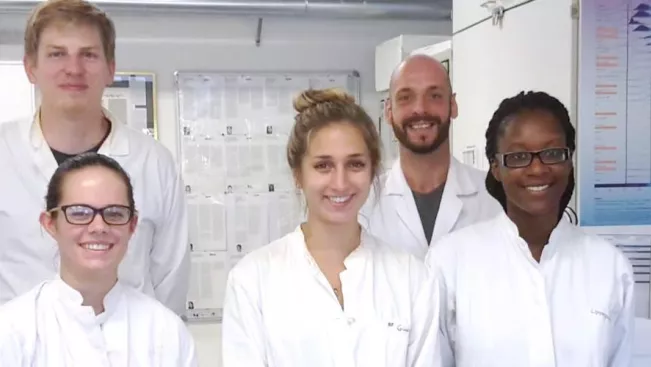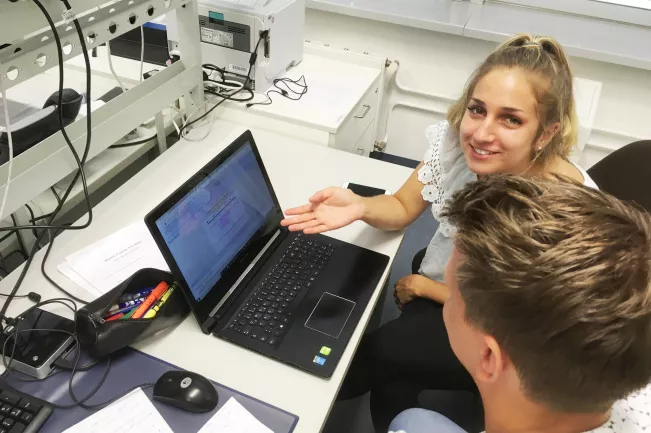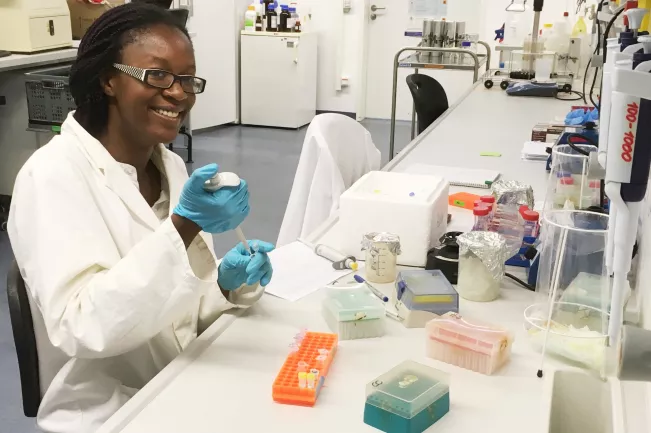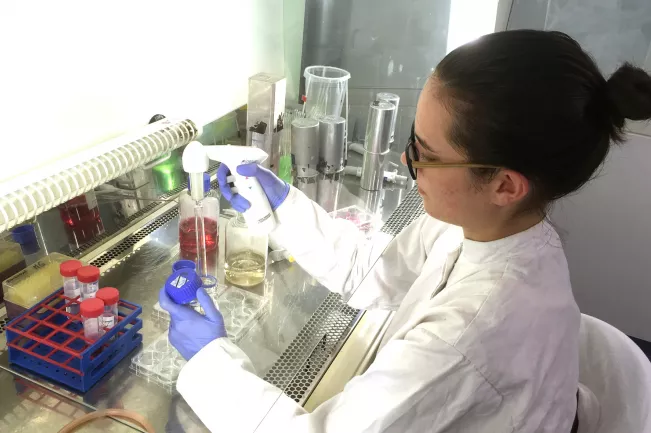Department of Natural Sciences
Three RISE Stipendiaries from America for Tobiasch

by Patrick Ottensmeyer
Lauren Delong, Shiraa Noumbissie-Nzefa and Maggie Colton are working with the PhD candidates Patrick Babczyk and Patrick Ottensmeyer to support their projects in stem cell differentiation. They came out on top of more than 30 candidates from the USA, Canada and UK, which ran for one of the positions at the University of Applied Sciences in Professor Tobiasch’s lab. Overall 1620 students applied for one of the 300 offered stipends.

Lauren Delong: Molecular pathways in atherosclerosis
Lauren is a second year biology major at the Salisbury University in Maryland, USA. She is dedicated to cardiovascular research as she completed a research internship at the National Institute of Aging last summer. In the lab of Professor Tobiasch she works with Patrick Babczyk on the study of the molecular pathways that are related to the development of atherosclerosis. More specified she is looking at the expression of purinergic receptors during the early phase of atherosclerosis.

Shiraa Noumbissie-Nzefa: Expression of adenosine receptors
Shiraa just began the third year of her bachelor studies in biotechnological engineering at the University of Sherbrooke in Quebec, Canada. Before she came to Germany, she was conducting research on neural differentiation of induced pluripotent stem cells at the CERVO Research Center. In Rheinbach, she is working with Patrick Ottensmeyer on the differentiation of mesenchymal stem cells towards bone cells to use them for bone grafting. In particular, she is investigating the expression of adenosine receptors during differentiation.

Maggie Colton: Genetic manipulation of purinergic receptors
Maggie joined the team at the beginning of July. She is in the third year of the bachelor studies in biology at the University of Chicago, USA. Parallel to her studies, she is a research intern in a cancer research lab at her university. In the lab of Professor Tobiasch she is also working on the differentiation of mesenchymal stem cells towards bone cells. Together with Patrick Ottensmeyer she is looking for ways to influence the expression of purinergic receptors during differentiation.
Progressive research in a region steeped in history
Apart from work, all three students are eager to explore the culture of Europe, Germany and North Rhine-Westphalia.
To the question of why they chose to conduct research in Germany, Shiraa answers: "I wanted to get to know research groups outside of Canada and Germany is known for a innovative scientific landscape."
Lauren adds: "The application process over the DAAD RISE program is easily accessible and you are able to choose over a high number of great research projects. Furthermore I was interested in Germany and Europe as a very old culture and I really enjoy the Rhine area with all its historic places."
Maggie agrees and says: "The public transport system in this area is so great, you can get to the cities around in a very short time. We are all three happy to have the chance to work in Professor Tobiasch’s lab as the projects are interesting and her PhD students are great mentors."
Links
Weiterführende Links